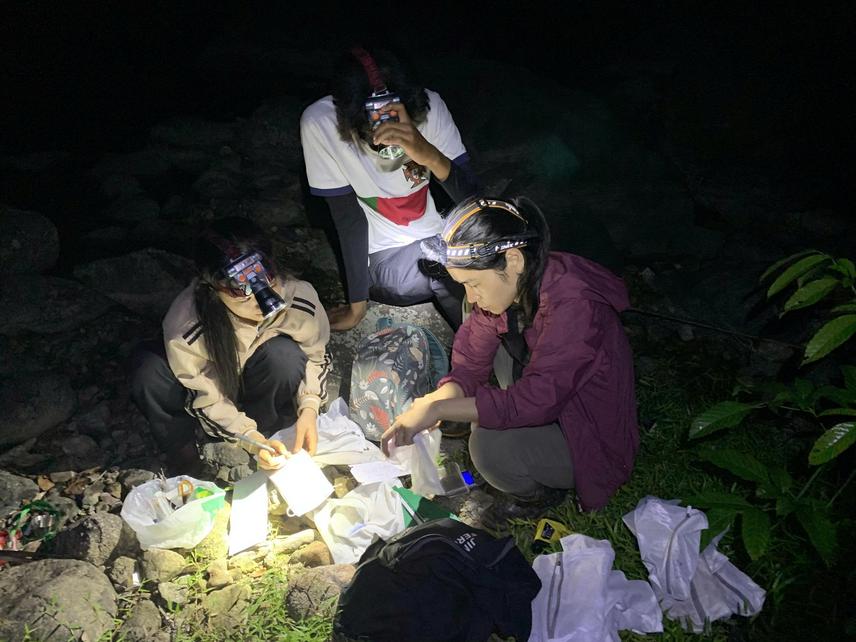Nguyen Thi Ngan
The project focuses on the conservation of two Gekko species endemic to Vietnam: the Russell Train’s Marble Gecko (Gekko russelltraini), found in Chua Chan Mountain, Xuan Loc District, Dong Nai Province, and the Ta Kou Marbled Gecko (Gekko takouensis), found in Ta Kou Nature Reserve, Ham Thuan Nam District, Binh Thuan Province (now Lam Dong Province). Both species are classified as "Vulnerable" on the IUCN Red List due to their restricted distributions and ongoing habitat degradation. Hunting pressure on gecko species in Vietnam is increasing, primarily driven by demand for consumption. However, no specific measures currently exist to regulate or prevent overexploitation, posing a serious threat to the long-term survival of these species.

Nguyen Thi Ngan (in purple) guiding students (in brown and white) in the field to identify and measure morphological features. © Ngo Ngoc Hai.
Using a multidisciplinary approach, the project will combine field surveys, semi-structured community interviews, ranger training, and public awareness activities to improve conservation outcomes. Population density and structure will be assessed through standardised field methods, while observed threats – such as habitat loss, land-use change, and illegal harvesting – will be documented using GPS data and photographic evidence. Interviews with local residents and forest rangers will provide additional insight into both environmental pressures and local perceptions of biodiversity.
The project will deliver the first comprehensive population assessments of G. russelltraini and G. takouensis, map key conservation threats, and develop site-specific recommendations for habitat protection and species management. Outreach efforts will include the installation of educational posters and interpretation signboards at both sites to promote public awareness and local involvement.
Capacity building will focus on training local forest rangers in wildlife monitoring techniques, strengthening their role in long-term conservation. Awareness campaigns will also encourage more sustainable practices among local communities whose livelihoods depend on natural resources.
Project findings will be disseminated to local authorities, conservation organisations, and the wider scientific community through bilingual reports (Vietnamese and English) and open-access publications. These outputs will support the development of evidence-based conservation strategies to secure the future of these Vulnerable species and foster long-term stewardship of biodiversity.